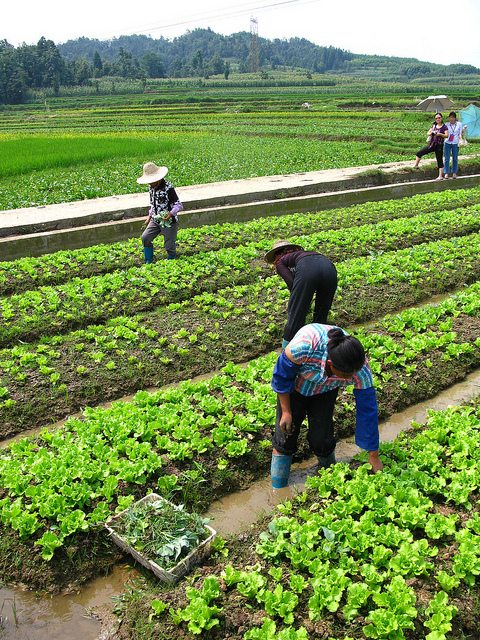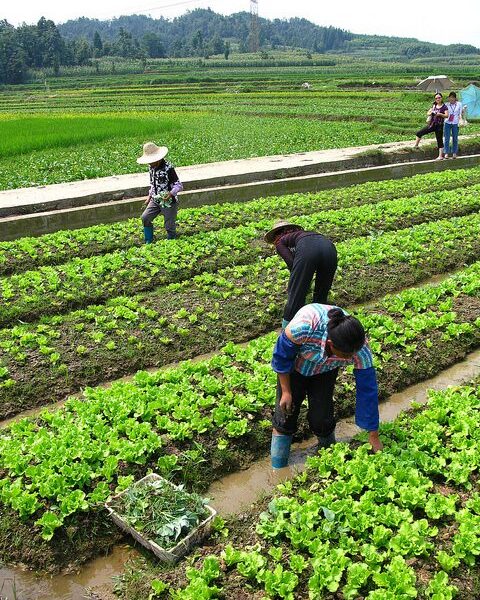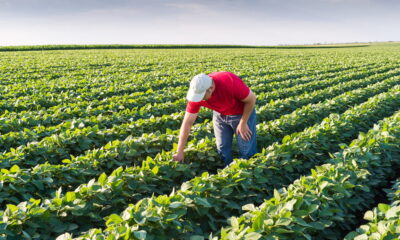

Economy
Sustainable and ecological agriculture could feed 3bn more people
Key measures in the agriculture sector could significantly increase the amount of food produced in the world, ensuring nutriment to the growing global population and reducing the environmental footprint of farming, a new report has suggested.
The study, published in the journal Science, focused on 17 key crops that produce 86% of the world’s calories and require the most resources. It found that by acting in three different areas, up to 3 billion more people could be fed and the agriculture sector could become more environmentally-friendly.
Measures include using water more efficiently, cutting the amount of fertiliser – 60% is useless according to scientists –, reducing crop waste due to the lack of infrastructure in developing countries and cutting animal products in order to direct crops used to feed livestock to human consumption.
Lead author Paul West, from the Institute on the Environment at the University of Minnesota, said, “Sustainably feeding people today and in the future is one of humanity’s grand challenges. Agriculture is the main source of water use, greenhouse gas emissions, and habitat loss, yet we need to grow more food.”
He added, “Fortunately, the opportunities to have a global impact and move in the right direction are clustered. By focusing on areas, crops and practices with the most to be gained, companies, governments, NGOs and others can ensure that their efforts are being targeted in a way that best accomplishes the common and critically important goal of feeding the world while protecting the environment.
“Of course, while calories are a key measure of improving food security, nutrition, access and cultural preferences must also be addressed. But the need to boost food security is high. So let’s do it.”
The study argues that by reducing the use of chemicals and the consumption of animal products, the agriculture sector could become much more sustainable, while closing ‘gaps’ in certain countries – meaning the difference between potential and actual crop yield – would help feed the ever increasing global population.
Photo: Walmart Corporate
Further reading:
Study: UK must adopt sustainable approach to food, health and farming
World needs to sustainably produce 70% more food by 2050
Feeding the world sustainably means investing in better solutions
Study: food of the future needs to be sustainable and healthy


 Environment12 months ago
Environment12 months agoAre Polymer Banknotes: an Eco-Friendly Trend or a Groundswell?

 Features11 months ago
Features11 months agoEco-Friendly Cryptocurrencies: Sustainable Investment Choices

 Features12 months ago
Features12 months agoEco-Friendly Crypto Traders Must Find the Right Exchange

 Energy11 months ago
Energy11 months agoThe Growing Role of Solar Panels in Ireland’s Energy Future






























